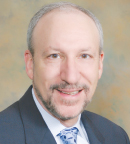Three leading oncology practices have united with partners in technology and finance to launch OneOncology, a physician-driven company that aims to unite more than 225 community oncology providers from 60-plus locations. Altogether, OneOncology will treat nearly 158,000 cancer patients a year.
The founding partners are Tennessee Oncology, West Cancer Center, and New York Cancer and Blood Specialists. The technology platform is provided by Flatiron Health, and General Atlantic has provided substantial capital investment. Flatiron Health is a health-care technology and services company that currently partners with over 275 community cancer clinics, 7 academic research centers, and 15 therapeutic oncology companies. General Atlantic is a global growth equity firm.

Lee S. Schwartzberg, MD, FACP
“The three founding groups are a good fit,” said board member Lee S. Schwartzberg, MD, FACP, Executive Director of West Cancer Center, Memphis. “We each have slightly different strengths, but we are all what I would call progressive oncology practices.”
The providers will remain independent but will receive many benefits by being part of OneOncology, said Dr. Schwartzberg. “OneOncology is a management organization that will provide expertise, technology, and best practices to all the practices that join.”
“We’ve already had tremendous interest since we went live,” he added. “There are a lot of practices interested in hearing more about it, and we have met with several already.”
“Many community oncologists are looking for alternatives, and banding together makes sense.”— Lee S. Schwartzberg, MD, FACP
Tweet this quote
‘Attractive’ Option for Community Oncologists
MORE THAN HALF of persons diagnosed with cancer are being treated in community-based settings. Oncologists caring for those patients are having a more difficult time doing so, Dr. Schwartzberg said.
“There is something about a physician-led organization that’s attractive to community practices,” he maintained. “As you know, community oncologists continue to be in a situation where there is a lot of pressure—pressure from payers and pressure pertaining to running their businesses with ever-more expensive drugs and lower margins. One of the models over the past few years has been to join with hospitals, and that has its own set of complications. Many community oncologists are looking for alternatives, and banding together makes sense.”
Some of the benefits of being part of OneOncology will be group purchasing power and infrastructure support for value-based reimbursement. Members will use a mutual electronic medical record informatics platform that will include state- of-the-art tools for dashboarding; they will not only handle billing and other administrative tasks efficiently but will enhance quality. OneOncology will determine what information physicians need to run their practices and will develop pathways and best practices. Ultimately, this effort will expand into outcomes-based measures, Dr. Schwartzberg said.
MORE ON ONEONCOLOGY
To learn more about the core beliefs and partners of OneOncology, visit https://oneoncology.com.“We are also interested in making sure we ask the right questions to get to ‘patient satisfaction,’” he added. “We believe that patient-engagement platforms will make the patient experience better. We are interested in creating a model around the patient experience, and to this end we will talk to patient advocacy groups.”
Care Across Disease Trajectory
ONEONCOLOGY’S VISION is to approach cancer as a chronic disease and offer comprehensive care across all steps of the disease trajectory. This includes aspects of care with which community oncology practices have often “struggled,” such as prevention and early detection on the front end and palliative care and survivorship on the far end, he said.
“Much thought and human capital will be put into these things,” such as investing in patient navigators and office-based urgent care treatment, he noted. These components of care will include “putting human capital” into investments such as patient navigators to meet the needs of patients.
“We are very excited about this company,” Dr. Schwartzberg commented. “As a physician-driven national organization we have the ability to really help oncologists take care of their patients.” ■
DISCLOSURE: Dr. Schwartzberg reported no conflicts of interest.

